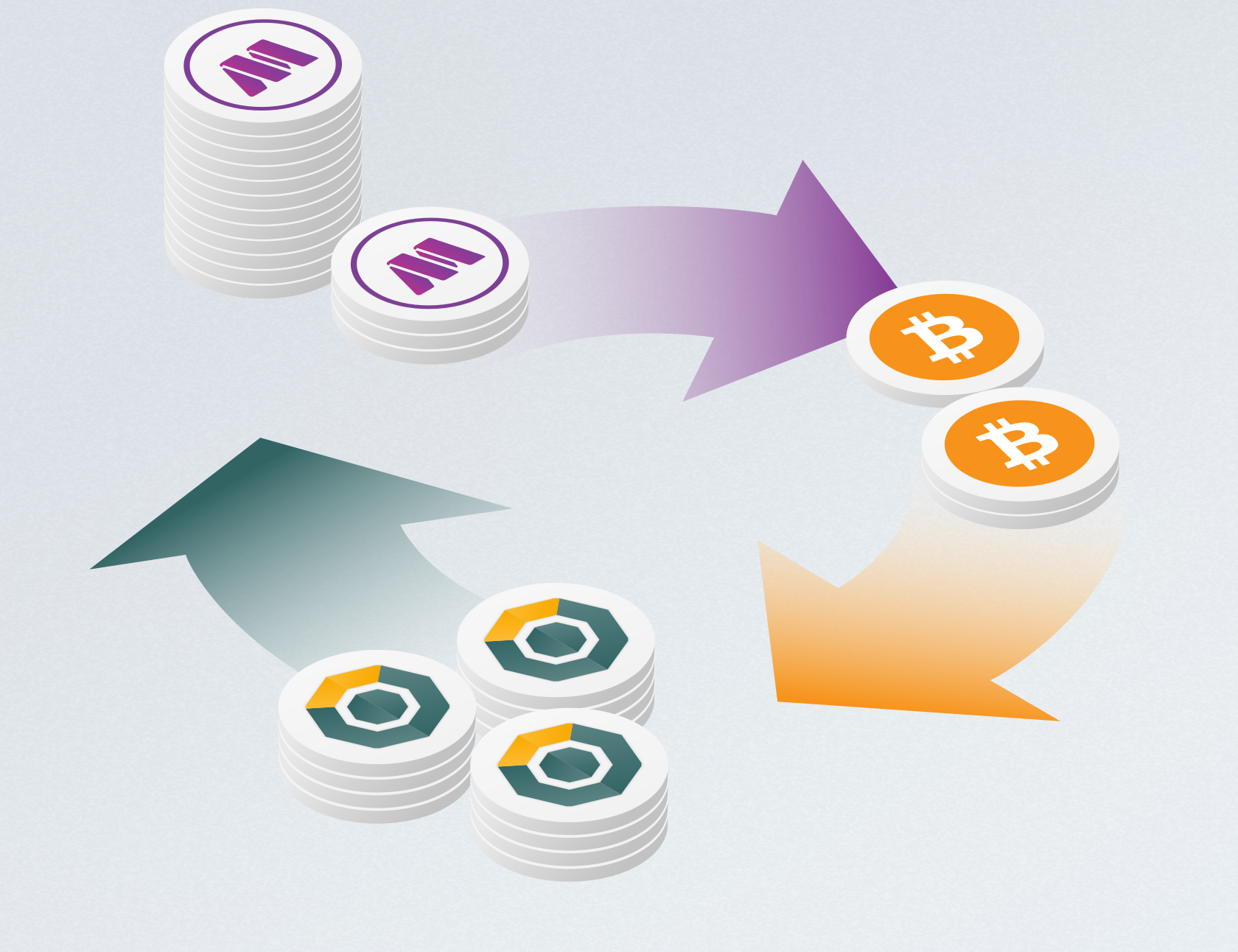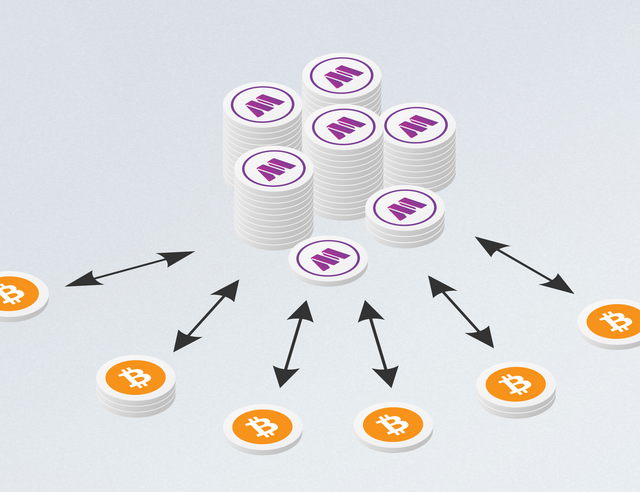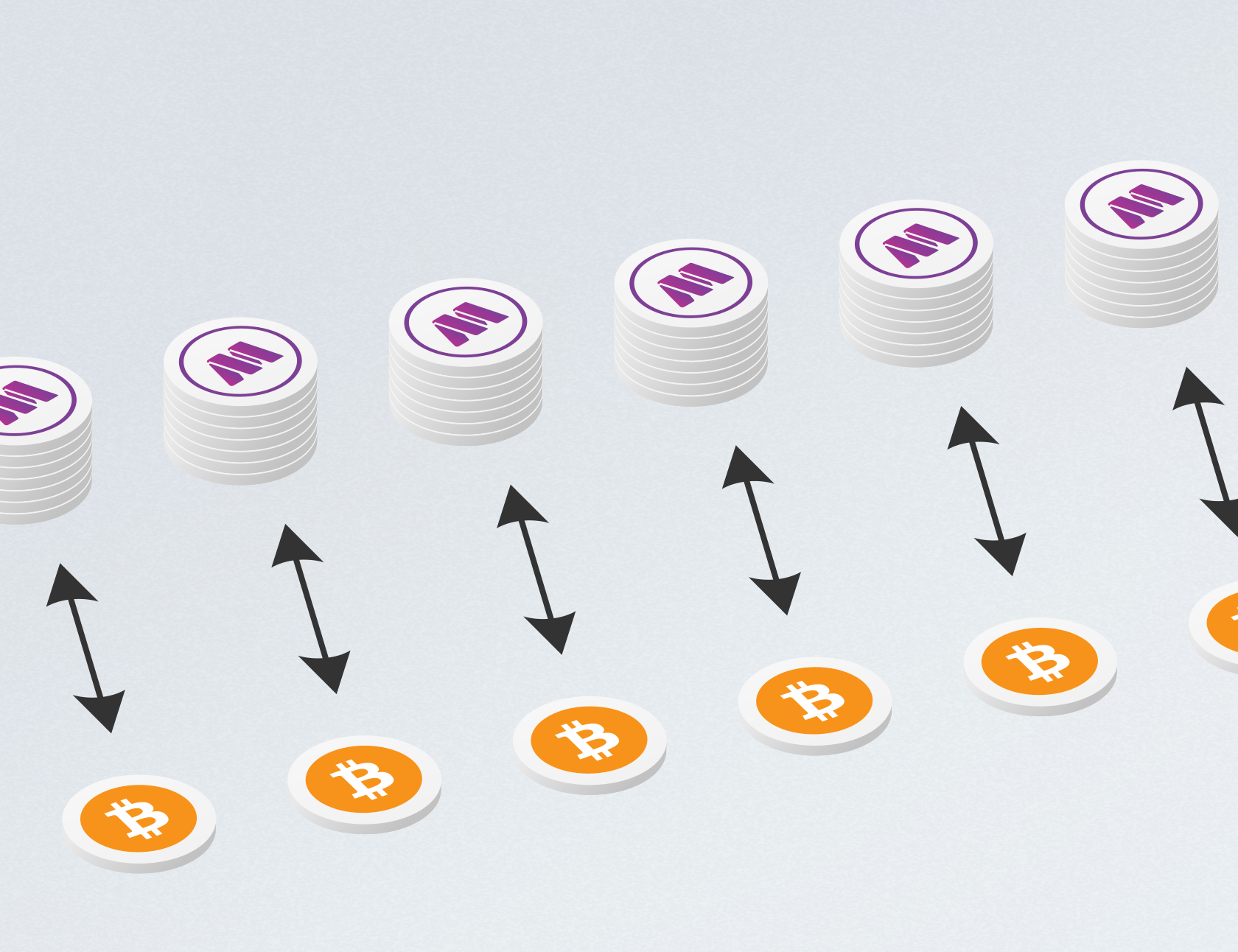The Decentralized ICO Platform

There lies a great power in the idea that any person, regardless of nationality, creed, or background, can obtain funding to innovate and prosper. An integral tenet of blockchain technology is “decentralization”: by decentralizing systems we curtail control points that can negatively impact innovation. Decentralization plays a more common role in our new cryptocurrency economy, but there is one area of the market that has remained centralized and vulnerable, The Initial Coin Offering, or ICO.
The blockchain environment needs a solution, and Komodo presents an answer with its groundbreaking technologies, JUMBLR and barterDEX, which we introduce to you this day.
The Challenges of Current ICO Platforms
Specific Weaknesses in Current ICOs
ICOs suffer several vulnerabilities:
- An innovator seeking to serve her intended audience could find that a third-party actor can intervene against her ideas; these antagonists may inhibit the innovator, even with personal and malicious intent, regardless of the innovation’s value
- During the initial stages of an ICO, wealthy technocrats (often referred to as “whales” for their large financial capital) have an unequal advantage; they can usurp the majority coin supply in a single purchase at the opening moment, and thereby manipulate the market price
- ICOs are generally conducted in escrow, whereby the purchasers must transfer money to one node, typically a website on a single server, and then wait while the issuer verifies the transactions, and eventually distributes the coins. During this time, the funding is centralized, and therefore vulnerable
- Because of the highly traceable nature of ICO transactions, it is difficult, if not impossible, to perform ICOs within our human-inherent Right to Barter in Private
An ICO innovator may experience unhealthy pushback from an opposing demographic
One weakness of the ICO process is, paradoxically, rooted in a great strength of blockchain technology: its borderless nature. A key power of any blockchain is that any human capable of accessing the technology can activate it, thus anyone can provide yet another verifiable record of the transaction history.
This ability to circumvent man-made barriers is integral to a blockchain’s survival because it prevents malicious actors from creating subjective borders around our records and then using authority to falsify and manipulate. An ICO innovator, therefore, may prefer to use a blockchain platform which transcends man-made barriers to protect their innovation.
This creates a conundrum, however. As a human race, we also find strength and empowerment in subjectively defining our own demographics for various reasons, whether they be to form companies, cultures, communities, etc. While we find the ability to create subjective demographics useful, it contrasts with the borderless nature of blockchain technology.
Members of one demographic may desire a specific ICO, but another demographic may find this ICO unfavorable, and therefore they might try to forestall progress. Yet, once again, for the underlying blockchain platform to maintain its integrity, it must serve both communities without regard to any man-made barrier between them, or else a malicious actor could enclose the record and manipulate.
The problem compounds even further as we observe that an ICO is capable of functioning anywhere there is access to the underlying blockchain platform. Once an ICO is released, any person in both demographics is now capable of utilizing the ICO, regardless of the overall sentiment of either demographic.
The problem becomes most pronounced if members of a competing group attempt to even maliciously prevent an innovation out of selfish reasons. It is imperative, therefore, that the innovator have the option of protection against would-be malicious competitors.
Current ICOs do not have sufficient protection. An ICO issuer is generally publicly vulnerable. Those who are not able to protect themselves, therefore, may be unable to release their full creative potential, innovate, and prosper together with their intended audience.
Human Foibles: The Problems of a Centralized ICO Node
Yet another issue plaguing ICOs stands in the fact that the initial period of purchase is centralized, which makes it vulnerable to several human foibles.
The first problem is that this centralized point of purchase creates an unequal playing field in favor of wealthy technocrats, or “whales.” To understand this problem, one must comprehend that “nodes” (computer servers which compute the buying and selling of cryptocurrencies) take orders from ICO purchasers one-by-one. Presently, ICOs are released on only one node — for example, the purchase could take place on a website running on a (1) server.

Because the node can only process one transaction at a time, the person whose order arrives first will receive an advantage over the coin’s future value. If the initial purchaser is both wealthy and able to program sophisticated bots, they can buy the entire supply before less wealthy or less technologically savvy people have a chance to participate. Therefore, in our current market often the people who would most benefit from an ICO are unable to participate before the supply evaporates. Meanwhile, this whale now acts as a centralized market manipulator.
Additionally, we note that because all coins of an ICO are often located on one node during the initial period, the entire supply is vulnerable. Both the funding provided by the purchasers and the ICO coins remain on the centralized node for a long period of time. The ICO coins and the crowdsourced funding could be: stolen, corrupted, or even lost due to simple human error. This central point of failure can be catastrophic for all participants.
The Right to Barter in Private
Finally, the lack of current privacy options inhibits blockchain participants from our right to barter in private. This inherent human right, to privately exchange goods and services, extends further into history than the written word. We have, as a species, utilized this right to organize into communities, institutions, architectures, and even nations. The Right to Barter in Private, however, is under modern threat by unscrupulous peoples and organizations that use the recent historical phenomenon, “The Internet of Information,” to monitor our shopping and bartering without cause.

We must reserve the right to barter in private, just as our ancestors of old, for we observe that there are myriad reasons why a common citizen may desire to barter free from the watchful eye of others. Yet the current state of ICOs, with their highly traceable nature, does not foster privacy.
The Komodo Answer
Our Komodo team is excited to reveal our open-source protocol, which successfully anonymizes and decentralizes the Initial Coin Offering process. We call this protocol, “dICO”: the decentralized Initial Coin Offering.
The problems found in competing demographics, whale manipulation, centralized funds, and of privacy we address with two new technologies: barterDEX and JUMBLR.
JUMBLR
Komodo’s JUMBLR technology provides complete anonymity for both the issuer and the purchaser, directly on the Komodo platform. This privacy can provide protection from a malicious third-party, and safeguards the citizen’s Right to Barter in Private.
Using advanced zk-SNARK protocols, both the issuer of the coin and the purchaser are untraceable on the blockchain. Thus, an innovative member of one community can issue a dICO in private, protected from both antagonistic competitors and unnecessary observers.
Considering the issue of privacy, for example, let us suppose a healthcare-oriented dICO serving disabled persons, the participants of which may desire to keep their condition private from their employers and neighbors; the Komodo platform provides a solution through which they can safely engage.
BarterDEX
BarterDex solves the issues of centralized ICO nodes. Whereas older ICOs occur on only one node, barterDex allows the issuing of a dICO on hundreds of nodes simultaneously, and with each node releasing the coins not all at once, but at a programmable logarithmic rate. This manner of release prevents whale manipulation, for now a technocrat would have to program a bot sophisticated enough to beat all the competition, at each of the nodes, simultaneously, and continue this dominance over an extended period of time. The process of usurping the market would be either infeasible, or at least exponentially more challenging.
To remove the vulnerability found when all the funding is located on one node, barterDEX utilizes two features. One is called Atomic Swaps, a protocol which makes the transaction instantaneous; the dICO coin transfers out from the server the moment the payment is made. Recall also that funds are spread over many nodes. Therefore, were a thief to successfully penetrate one node’s security, they would have access only to a small fraction of the overall market, and would only see either the initial coin, or the funding used for payment, but not both.
Freedom to Crowdfund
By providing privacy for dICO participants and decentralizing the manner of node release, the dICO provides protection, flexibility, and freedom to the existing ICO model. Both the innovators of a cryptocurrency and the purchasers of the token can maintain privacy, compete with whales on a more equal playing field, and avoid myriad dangers.
The dICO is to crowdfunding what The Internet is to free speech.
These security measures, privacy options, and protocols of decentralization take place directly on the Komodo platform, and we intend to continue simplifying the process until any innovator can utilize it with as little training as possible.
While many may say that the growth of the cryptocurrency market is reaching its zenith, we at Komodo believe that it is has not yet begun the fight, and we hope that Komodo will make a meaningful contribution to the remarkable advent of decentralization.
Amazing article. Amazing technology. Looking forward to see more stuff going on with KMD. I mean why isn't this even a $1 billion dollar crypto already? You guys probably should do more marketing and FUD control. Good luck with your dICOs!